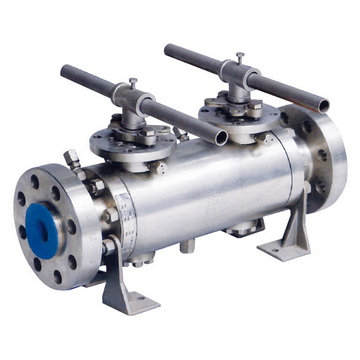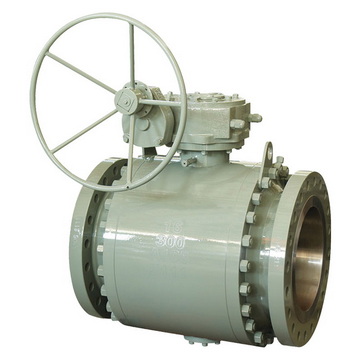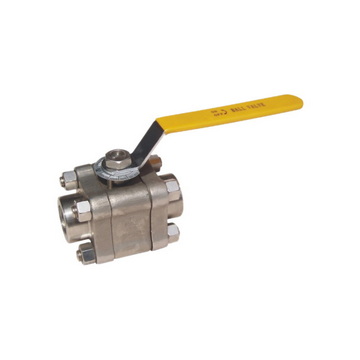Top Stainless Steel Ball Valve Manufacturers and Suppliers in Australia
Content Menu
● Introduction to Stainless Steel Ball Valves
● Overview of Stainless Steel Ball Valve Characteristics
● Top Stainless Steel Ball Valve Manufacturers and Suppliers in Australia
● Applications of Stainless Steel Ball Valves in Australia
● Technical Advantages and Innovations in Modern Stainless Steel Ball Valves
● Selection Criteria When Purchasing Stainless Steel Ball Valves
● Frequently Asked Questions (FAQ)
>> 1. What are the key differences between 1-piece, 2-piece, and 3-piece stainless steel ball valves?
>> 2. Are stainless steel ball valves suitable for high-temperature applications?
>> 3. Can I use Australian-made ball valves for offshore oil platforms?
>> 4. What certifications should I look for in stainless steel ball valves?
>> 5. How do I choose between floating ball valves and trunnion ball valves?
When it comes to high-quality stainless steel ball valves in Australia, several manufacturers and suppliers stand out for their expertise, product range, and industry applications. These companies provide robust solutions essential across various sectors, including oil and gas, seawater desalination, offshore platforms, and industrial fluid control. As a Chinese factory specializing in designing, developing, and manufacturing premium ball valves—such as floating ball valves, trunnion ball valves, and top entry ball valves—offering OEM services to international brand owners, wholesalers, and manufacturers, this article aims to highlight the top stainless steel ball valve manufacturers and suppliers in Australia while incorporating relevant insights.

Introduction to Stainless Steel Ball Valves
Stainless steel ball valves are integral components in fluid control systems, valued for their durability, corrosion resistance, and reliable sealing performance. Made typically of 316 stainless steel, these valves provide outstanding strength and can withstand harsh environments, including high pressure and temperature conditions common in industries like oil and gas. Their versatility and robustness allow them to be used in challenging applications where other valve types might fail or require frequent maintenance.
There are various types of ball valves, including:
- Floating ball valves: A design where the ball is free to move slightly within the valve housing. This floating capability allows the ball to press against the downstream seat, creating a tight seal. Floating ball valves are commonly used for smaller pipe sizes and low to medium-pressure applications.
- Trunnion ball valves: These feature a fixed ball supported on trunnions (shaft supports), which take the load off the valve seats, making this type suitable for larger sizes and higher-pressure systems. Trunnion ball valves provide excellent sealing with less operating torque, ideal for challenging environments like oil and gas pipelines.
- Top entry ball valves: Designed for easy maintenance and assembly, these valves allow access to internal components from the top of the valve body without removing the valve from the pipeline, reducing downtime and simplifying repair processes.
These valve types are widely applied in sectors such as upstream, midstream, and downstream oil and gas operations, offshore drilling platforms, seawater desalination, chemical processing, and water treatment plants.
Overview of Stainless Steel Ball Valve Characteristics
Stainless steel ball valves are prized for a combination of mechanical and chemical properties:
- Corrosion resistance: The stainless steel alloy, particularly grade 316, contains molybdenum, which enhances resistance against chlorides and harsh chemicals, making them effective in marine and chemical environments.
- Strong pressure and temperature tolerance: These valves operate safely under pressures up to 1000 PSI and temperatures ranging from subzero levels to 200°C and beyond, depending on seal materials.
- Excellent sealing and leak prevention: With advanced seals such as polytetrafluoroethylene (PTFE) or reinforced PTFE, stainless steel ball valves assure tight shutoff, minimizing process fluid leakage.
- Ease of automation: Ball valves lend themselves to actuation via electric, pneumatic, or hydraulic actuators, enabling remote and automated process control.
- Longevity and maintenance convenience: Many valve designs, especially three-piece and top-entry types, allow for in-line servicing without disassembling the entire system.
Due to these advantages, stainless steel ball valves have gained widespread adoption in environments that demand durability, safety, and reliability.
Top Stainless Steel Ball Valve Manufacturers and Suppliers in Australia
Australia has many manufacturers and suppliers distinguished by their extensive range and quality certifications. While local production is strong, many companies also maintain international partnerships or import OEM valves from trusted Chinese manufacturers that meet Australian standards. Below is a synthesis of key players and their offerings.
Valve Warehouse Australia is notable for stocking various stainless steel ball valve types including one-piece, two-piece, three-piece, and three-way designs made with 316 stainless steel. Their valves are suitable for industrial and plumbing projects, featuring pressure ratings up to 1000 WOG (water, oil, gas), lockable handles for safety, and BSP threaded ends for easy installation. They provide technical datasheets and delivery across Australia.
John Valves focuses on flanged stainless steel ball valves ranging from DN15 to DN300 sizes. They manufacture valves in compliance with ANSI and AS2129 standards, and some models come certified under the WaterMark scheme for potable water applications. Their product selection particularly suits Australian refinery and municipal water treatment needs, supported by distribution and repair centers in Ballarat, Perth, and Brisbane.
Anzor Australia supplies both 1-piece and 2-piece stainless steel ball valves made from 316 stainless steel with PTFE stem packing and pressure ratings up to 1000 PSI. Their valves accommodate industrial and brewing industry requirements, as well as general process applications demanding chemical resistance.
Process Systems presents a comprehensive portfolio that spans stainless steel, nickel-plated brass, and UPVC ball valves available in manual, pneumatic, and electric actuated options. Their models come in 2-way, 3-way, and V-port styles with flanged or threaded ends, serving customers across water treatment, petrochemical, and industrial automation sectors.
Additionally, RKSfluid, a prominent Chinese factory with strong OEM capabilities, supplies various ball valve solutions globally, including the Australian market. Their range covers floating ball valves, trunnion ball valves, metal-seated and soft-seated variants with threaded and flanged ends. Stringent certifications such as API, DIN, ASME, and ISO verify their compliance with international standards. RKSfluid emphasizes customization, fast lead times, and engineering support for offshore rigs, chemical plants, and natural gas applications.

Applications of Stainless Steel Ball Valves in Australia
The versatility of stainless steel ball valves underpins their usage in multiple demanding sectors:
- Oil and Gas Industry: Valves must resist corrosive hydrocarbons, withstand fluctuating pressures, and allow fast shutoff during emergencies. Ball valves serve in upstream extraction plants, pipeline networks (midstream), and refining and distribution facilities (downstream). Their leak-tight sealing ensures environmental compliance.
- Seawater Desalination Plants: Due to exposure to salt-laden water, valves require superb corrosion resistance. Stainless steel ball valves maintain integrity in coastal and offshore desalination units, controlling feedwater intake, chemical dosing, and product water flow.
- Offshore Drilling Platforms: Operating in harsh marine environments with fluctuating pressure and temperature conditions, offshore platforms demand ball valves fabricated from high-grade stainless steel with specialized coatings or treatments. The valves' ruggedness prevents failure and facilitates remote operation by integrated actuation systems.
- Chemical and Pharmaceutical Plants: Flow control for aggressive chemicals must guarantee leak-tight and contamination-free operation. Stainless steel valves with PTFE seals and smooth internal surfaces avoid product degradation or contamination, essential for high-purity processes.
- Municipal Water and Wastewater Treatment: Stainless steel ball valves ensure safe management of potable water supplies and sewage. Their corrosion resistance extends valve life in aggressive chemical dosing systems and varying pH environments.
Technical Advantages and Innovations in Modern Stainless Steel Ball Valves
The design and technology of stainless steel ball valves have evolved significantly to meet increasing customer demand for performance and reliability:
- Advanced Sealing Technologies: Use of reinforced PTFE, graphite, and metal-to-metal seals in soft- and metal-seated valves improves resistance to wear, extreme temperatures, and aggressive chemicals.
- Fire Safe Designs: Many valves conform to ISO 10497 or API 607 fire safety standards, ensuring that in case of fire exposure, the valve maintains a seal and prevents fluid leakage.
- Multi-Port Valves: Designs such as three-way and four-way ball valves offer versatile flow configurations for mixing, diverting, and sampling processes.
- Automation and Smart Control: Integration with pneumatic and electric actuators, coupled with position feedback sensors and smart controllers, transforms valves into components of Industry 4.0 systems, enabling remote monitoring and predictive maintenance.
- Coatings and Surface Treatments: To further enhance corrosion and abrasion resistance, special coatings like electropolishing or hard chrome plating are applied to valve internals or sealing surfaces.
These innovations provide end users greater control, better safety margins, and reduced operational costs through longer service intervals.
Selection Criteria When Purchasing Stainless Steel Ball Valves
Choosing the right stainless steel ball valve from Australian manufacturers or suppliers requires attention to several factors:
- Material Quality: Ensure the valve body and internal components are made of 316 or higher grade stainless steel, especially in seawater or chemical applications.
- Pressure and Temperature Ratings: Confirm the valve's maximum pressure and temperature align with your system's operating conditions.
- Connection Type: Choose between threaded, flanged, welded, or hygienic connections depending on pipeline setup and maintenance preferences.
- Valve Design: Floating ball valves can be economical for smaller diameters, while trunnion ball valves offer better performance for larger diameters under high pressure.
- Seal and Seat Material: Select seat and seal compositions compatible with the media handled, temperature, and pressure.
- Certifications: Verify compliance with applicable Australian and international standards (API, ASME, ISO, WRAS, etc.).
- Maintenance and Repair: Opt for valves that offer ease of disassembly, in-line servicing, and availability of replacement parts.
Working with trusted manufacturers and suppliers who provide technical support, documentation, and after-sales service improves procurement outcomes significantly.
Conclusion
Australia's market for stainless steel ball valves is served by a diverse group of experienced manufacturers and suppliers offering a vast range of high-quality, corrosion-resistant valves designed to meet stringent industry requirements. Whether valves are locally produced or supplied via trusted OEMs from China, including floating ball valves, trunnion ball valves, and top entry valves, they support critical applications across oil and gas, seawater desalination, offshore drilling, chemical processing, and public water infrastructure. Buyers prioritizing comprehensive certifications, tailored engineering, and robust after-sales support will secure equipment that enhances process safety, efficiency, and reliability in Australia's demanding industrial landscape.

Frequently Asked Questions (FAQ)
1. What are the key differences between 1-piece, 2-piece, and 3-piece stainless steel ball valves?
- Answer: One-piece valves are compact but non-serviceable, requiring replacement if damaged. Two-piece valves can be disassembled from one side, easing seal replacement. Three-piece valves allow the middle section, which houses the ball and seats, to be removed without disconnecting the valve from the pipeline, enabling easier maintenance and inspection.
2. Are stainless steel ball valves suitable for high-temperature applications?
- Answer: Yes. Most 316 stainless steel ball valves with PTFE or reinforced seals operate reliably up to around 200°C. Some specialized seals or metal seats allow operation beyond this limit, depending on application requirements.
3. Can I use Australian-made ball valves for offshore oil platforms?
- Answer: Definitely. Australian manufacturers offer valves designed and tested to meet international standards suitable for extreme offshore environments, including resistance to corrosion, vibration, and high pressure. Many comply with fire safety and quality certifications mandatory for offshore use.
4. What certifications should I look for in stainless steel ball valves?
- Answer: Relevant certifications include API 6D for pipeline valves, ASME B16.34 for design and manufacturing, ISO 9001 for quality management, WRAS for potable water suitability, CE marking for European conformity, and others such as ANSI, DIN, or Fire Safe ISO/API standards depending on the application.
5. How do I choose between floating ball valves and trunnion ball valves?
- Answer: Floating ball valves are generally better for smaller pipes and low to medium pressure systems and tend to be more cost-effective. Trunnion ball valves, with their fixed ball supported by trunnions, are preferred for larger diameter pipes and higher pressure systems because they reduce the operating torque and provide stronger sealing capabilities under challenging conditions.
Hot tags: Top Stainless Steel Ball Valve Manufacturers Australia, Best Ball Valve Suppliers in Australia, Australian Stainless Steel Valve Companies, Industrial Ball Valve Manufacturers Australia, Stainless Steel Valve Exporters Australia, High-Performance Ball Valves Australia, Ball Valve OEM Suppliers Australia, Stainless Steel Valve Distributors Australia, Precision Ball Valve Manufacturers Australia, Leading Valve Companies in Australia